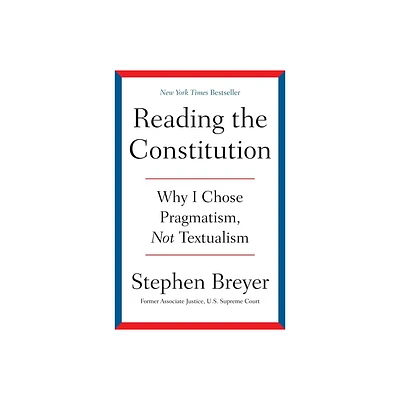Home
Fidelity to Our Imperfect Constitution: For Moral Readings and Against Originalisms
Loading Inventory...
Barnes and Noble
Fidelity to Our Imperfect Constitution: For Moral Readings and Against Originalisms
Current price: $130.00


Barnes and Noble
Fidelity to Our Imperfect Constitution: For Moral Readings and Against Originalisms
Current price: $130.00
Loading Inventory...
Size: OS
*Product Information may vary - to confirm product availability, pricing, and additional information please contact Barnes and Noble
In recent years, some have asked "Are we all originalists now?" and many have assumed that originalists have a monopoly on concern for fidelity in constitutional interpretation. In
Fidelity to Our Imperfect Constitution
, James Fleming rejects originalisms-whether old or new, concrete or abstract, living or dead. Instead, he defends what Ronald Dworkin called a "moral reading" of the United States Constitution, or a "philosophic approach" to constitutional interpretation. He refers to conceptions of the Constitution as embodying abstract moral and political principles-not codifying concrete historical rules or practices-and of interpretation of those principles as requiring normative judgments about how they are best understood-not merely historical research to discover relatively specific original meanings. Through examining the spectacular concessions that originalists have made to their critics, he shows the extent to which even they acknowledge the need to make normative judgments in constitutional interpretation. Fleming argues that fidelity in interpreting the Constitution as written requires a moral reading or philosophic approach. Fidelity commits us to honoring our aspirational principles, not following the relatively specific original meanings (or original expected applications) of the founders. Originalists would enshrine an imperfect Constitution that does not deserve our fidelity. Only a moral reading or philosophic approach, which aspires to interpret our imperfect Constitution so as to make it the best it can be, gives us hope of interpreting it in a manner that may deserve our fidelity.
Fidelity to Our Imperfect Constitution
, James Fleming rejects originalisms-whether old or new, concrete or abstract, living or dead. Instead, he defends what Ronald Dworkin called a "moral reading" of the United States Constitution, or a "philosophic approach" to constitutional interpretation. He refers to conceptions of the Constitution as embodying abstract moral and political principles-not codifying concrete historical rules or practices-and of interpretation of those principles as requiring normative judgments about how they are best understood-not merely historical research to discover relatively specific original meanings. Through examining the spectacular concessions that originalists have made to their critics, he shows the extent to which even they acknowledge the need to make normative judgments in constitutional interpretation. Fleming argues that fidelity in interpreting the Constitution as written requires a moral reading or philosophic approach. Fidelity commits us to honoring our aspirational principles, not following the relatively specific original meanings (or original expected applications) of the founders. Originalists would enshrine an imperfect Constitution that does not deserve our fidelity. Only a moral reading or philosophic approach, which aspires to interpret our imperfect Constitution so as to make it the best it can be, gives us hope of interpreting it in a manner that may deserve our fidelity.

![High Fidelity: A Musical [Original Cast Recording]](https://prodimage.images-bn.com/pimages/0791558442120_p0_v1_s600x595.jpg)
















